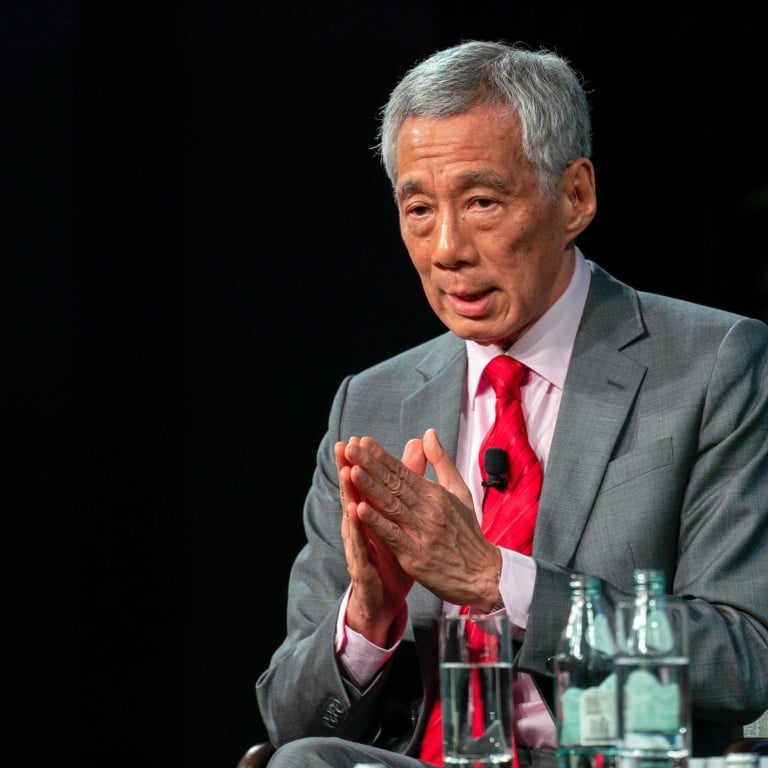
As Singapore’s PM Lee Hsien Loong turns 70, no clear successor is in sight
- Lee signalled his intention to step down before he turned 70 but at the height of the pandemic pledged to stay on to steer the city state into calmer waters
- With no ‘stand-out’ successor now, the danger is that the eventual leader ‘will not be seen as a clear choice in the first place’, says an ex-MP
Yet there is no clear successor in sight and observers are predicting that Lee may continue in his role until at least the middle of this decade.
For years, they frequently referenced an interview Lee gave a decade ago when he was asked whether he saw himself continuing as prime minister beyond the age of 70.
Singapore’s Lee says party needs ‘a little longer’ to pick his successor
Lee, the eldest son of Singapore’s modern founder Lee Kuan Yew, is deeply popular within the ruling People’s Action Party’s (PAP) broad base of supporters.
But the seeming succession vacuum has still been unsettling for the public, given that past political transitions were long-telegraphed affairs.
Sentiment around the lack of clarity on leadership planning is likely to weigh on Lee and his government as they train their current focus on dealing with the Covid-19 pandemic, commentators say.
“My sense is that Singaporeans prefer to see a decision be made soon,” said Inderjit Singh, a former member of parliament in the prime minister’s group representation constituency.
Singh underscored that the PAP had for decades had a “very structured succession plan”, and that a longer wait could mean the public might “lose confidence” in the ruling party’s ability to recruit future leaders.
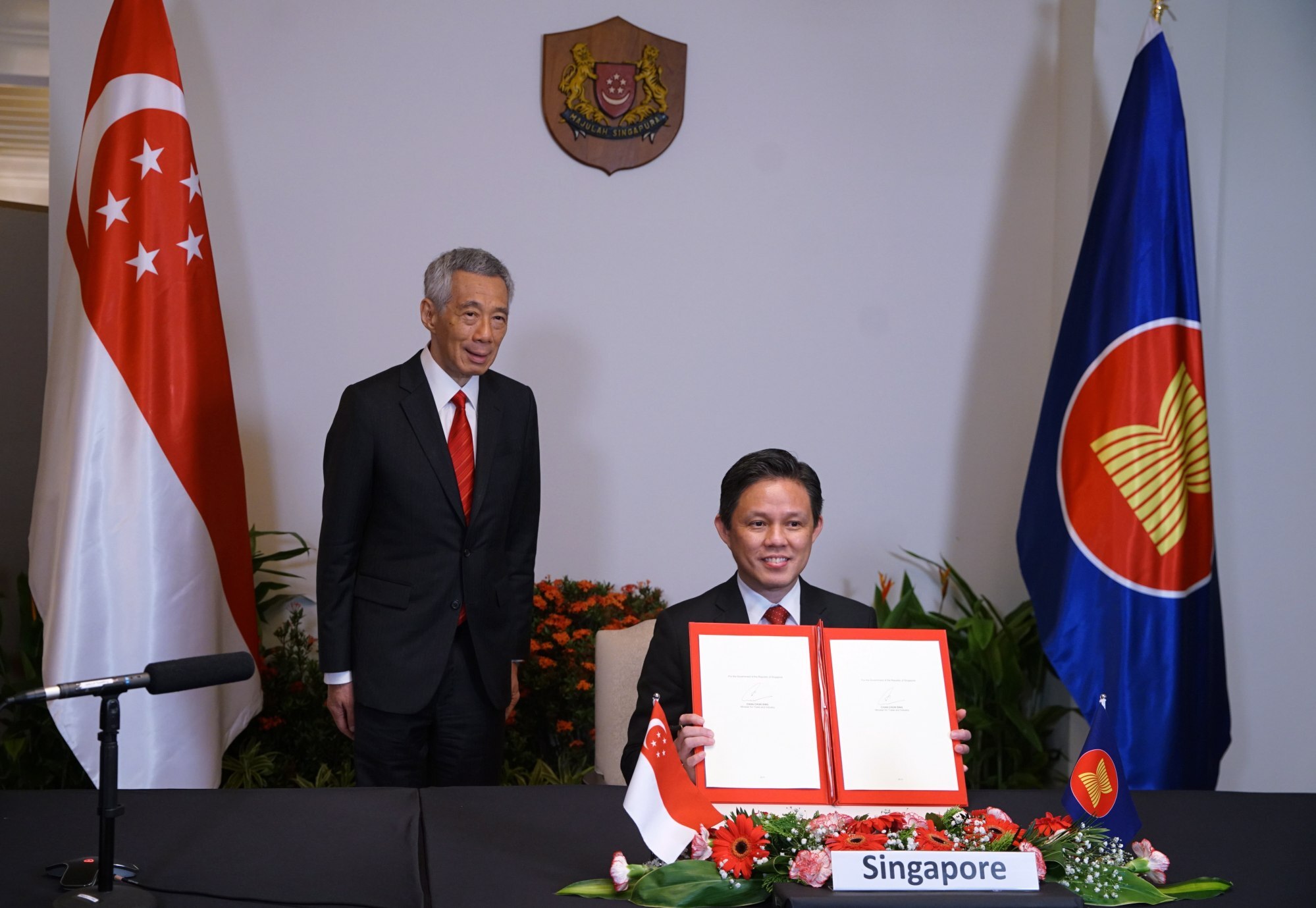
Any sort of delay in the naming of Lee’s successor past 2022 could also lead to the outside world wondering if the “4G” or fourth-generation PAP leaders will be able to govern as well as Lee and his contemporaries, Singh said.
“We must also show to the world that the current group of 4G leaders are capable enough to lead the country,” he said. “Giving confidence to the rest of the world is important as we see big structural changes globally that can affect Singapore’s position on the world stage.”
Garry Rodan, a veteran scholar of Singapore’s politics, said the current state of affairs was “likely to further fuel public scepticism about the PAP’s long-standing claims that the party is defined and distinguished by its exceptional stocks of talent due to its meticulous and rigorous recruitment process”.
“If that were so, why is it proving so hard to find a successor for Mr Lee Hsien Loong? Are the recruitment criteria too narrow or are there issues of internal PAP control that are influencing the leadership transition? These sorts of questions will gain more traction the longer the delay,” added Rodan, an honorary professor at the University of Queensland in Australia.
Who will be Singapore’s next PM with Heng Swee Keat out of the race?
Derailed by Covid-19
Amid the uncertainty caused by the health crisis and the ensuing economic downturn, Lee in 2020 pledged to remain in power to steer Singapore into calmer waters.
Elevated to the PAP’s No 2 position in 2018, Heng, 60, said he believed he would be too old for the job by the time the crisis subsided.
After that development, three other PAP ministers are now viewed by local media and commentators as prime contenders to succeed Lee: Education Minister Chan Chun Sing, Finance Minister Lawrence Wong and Health Minister Ong Ye Kung.
Within the usually tight-knit establishment, however, sources offer differing accounts of the progress that has been made in the process.
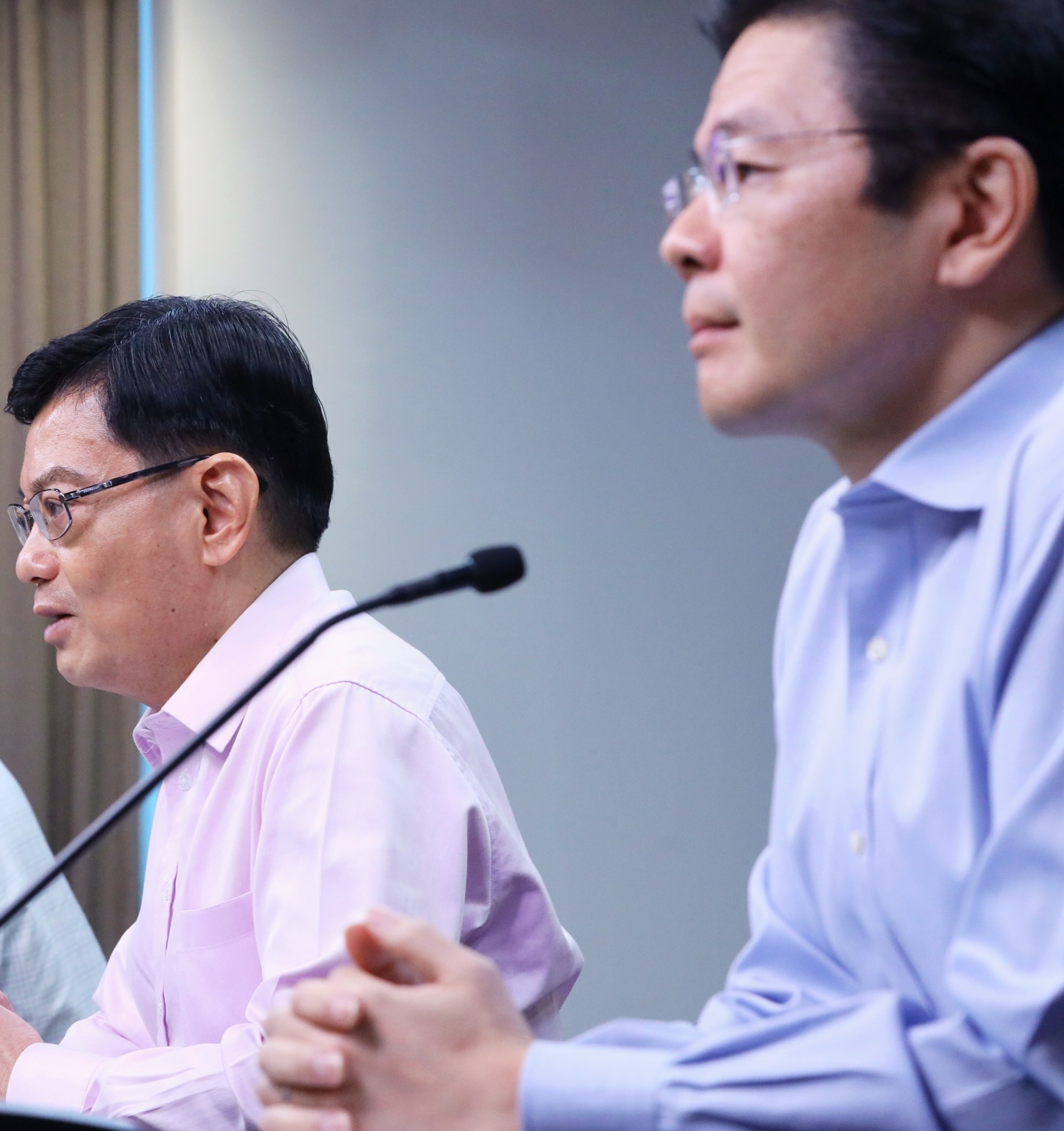
Secretive process
The PAP selects its top leader in a secretive process that has been likened to the way cardinals pick a pope. The sitting prime minister stays out of the procedure, and gives that responsibility to the party’s next-generation leaders who choose one among themselves as the first among equals.
In the current instance, some insiders suggest the 32-strong 4G group has in recent months whittled down its choice to one such person among Chan, Wong and Ong.
But others say there is a lack of complete consensus approving this candidate.
This Week in Asia could not independently verify these accounts, which were relayed by sources who are not within the 4G group.
Asked for his views on whether the competition had been consolidated, Singh, the former MP, said “the way things have been going on, many still cannot guess who among the 4G will eventually become the prime minister”.
He added that if the process dragged on, it would become “more difficult” for the person who was eventually picked as “he will be seen as not a clear choice in the first place”.
‘Cure cannot be worse than disease’: why Singapore changed its Covid-recovery plan
Eugene Tan, a long-time observer of Singapore politics, said he believed there was “probably no stand-out putative successor and so the 4G team has to determine which pairing would be best”.
Nydia Ngiow, the managing director of the BowerGroupAsia consultancy in Singapore, suggested Ong and Wong remained “top of mind” because of their high-profile co-leadership of the country’s Covid-19 task force. Chan, the education chief, cannot be disregarded as he had been “steadfast” in his current portfolio, Ngiow said.
Every move made by the front runners will be viewed through the lens of competition [by] the public
Chan previously served in the trade and industry and social and family development ministries, and was also dispatched by Lee to lead the influential National Trades Union Congress, closely associated with the PAP, from 2015 to 2018.
The 52-year-old former army general is the most senior member of the PAP among the three contenders, holding the position of second assistant secretary general.
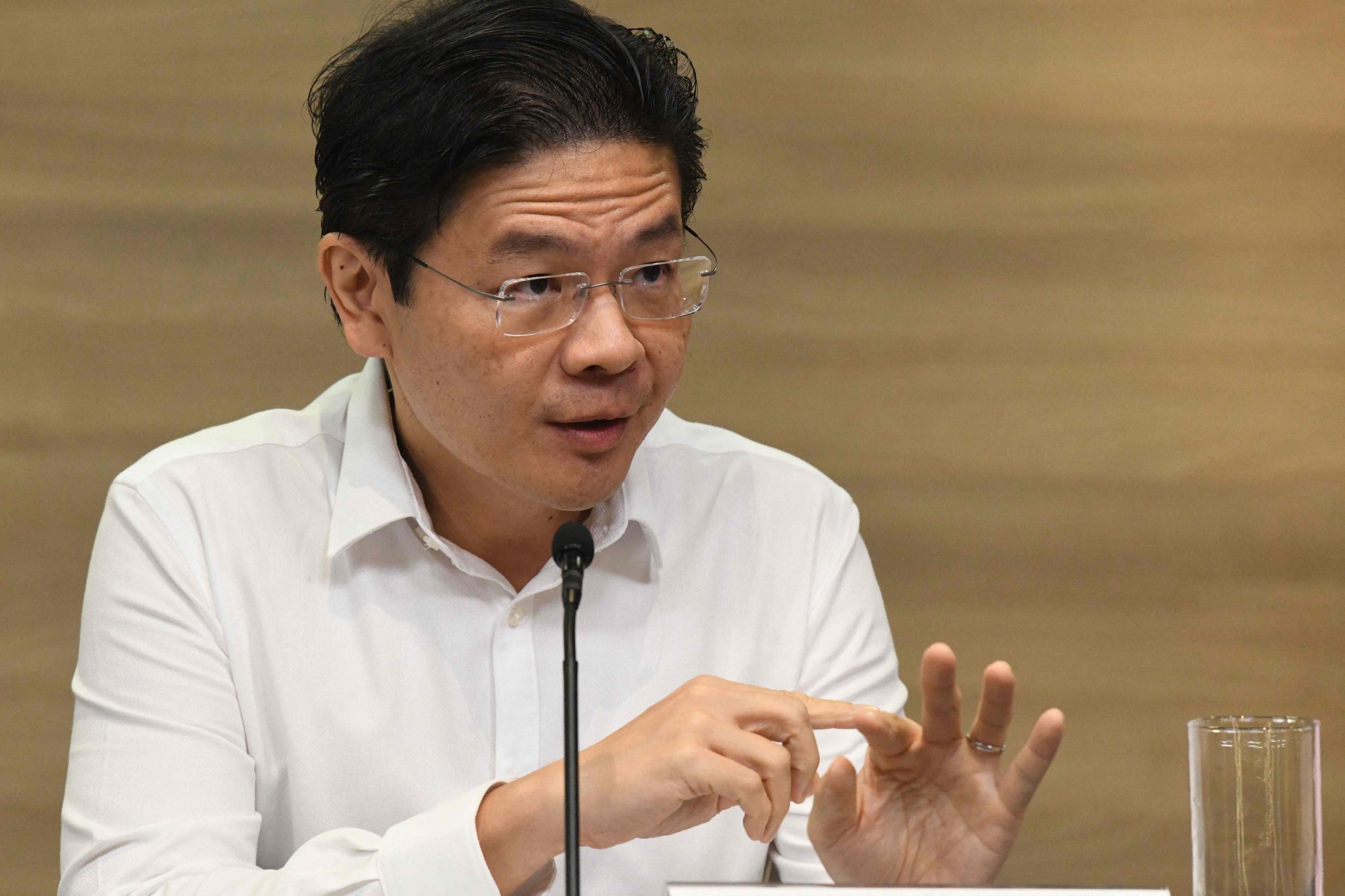
Reading the signs
The Byzantine nature of the succession process has meant that the public – for decades used to the PAP’s stage management of its internal transitions – has been parsing the three potential candidates’ words and actions for signs of a rivalry.
For their part, the three ministers have on various occasions indicated that the entire 4G team works well with one another.
A Bloomberg report last October suggested there were differences over Singapore’s reopening plans between the two Covid-19 tsars Ong and Wong.
The latter denied this, and both ministers have in recent months appeared jointly in social media videos addressing questions about the health crisis.
Still, the speculation is unlikely to die down until the PAP “definitively names a successor”, said Ngiow.
“Until then, every move made by the front runners will be viewed through the lens of competition as the public assesses their every move,” she said.
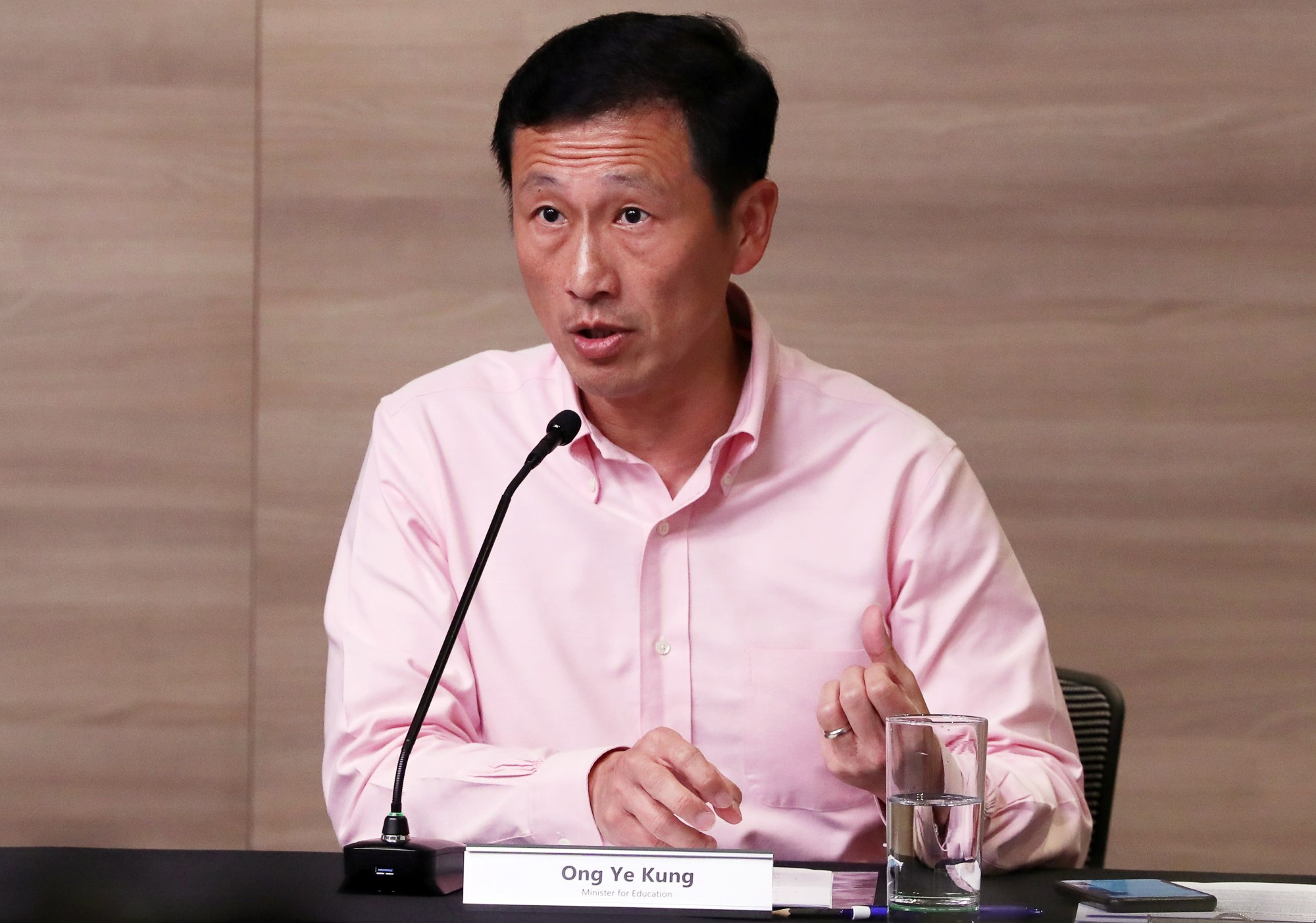
Tan suggested there was a risk that a rivalry develops in real life – rather than just in the imagination of citizens – if the succession was not settled soon.
“It could result in the odd front runner engaging in showmanship – not so much to appeal to his peers but rather the general public – to better stake his claim,” said Tan, a Singapore Management University law professor.
Tan and others acknowledged that whether the succession process is hastened could be determined by the trajectory of the pandemic.
Singapore has transitioned to a “living with Covid” model following a pacesetting vaccination exercise, but officials such as health chief Ong have warned that the city state remained in the “fog of war” amid an ongoing wave of infections linked to the Omicron variant.
Singapore minister’s apology lays bare angst over elite school obsession
“In the short-term, PM Lee’s top priority is to ensure that Singapore will make a swift and sustainable recovery once the pandemic becomes less of a public health concern,” said Tan.
After that, with his successor named, Lee will have to “time his stepping down as premier to perfection,” he said.
Since coming to power in 2004, Lee has led the PAP in four general elections, retaining its hold on power even amid the emergence of a more effective opposition, and the loosening of tight controls on dissent and the media imposed during the Lee Kuan Yew era.
The Singapore economy, already one of the world’s most competitive when Lee took over from Goh, continues to retain that position. The city state had in the years before the Covid-19 pandemic consolidated its status as a leading financial, transport and technology hub.
Lee’s successor will however have to deal with growing public concerns about immigration, a fast-greying local population and the country’s place in the world amid the US-China rivalry, observers say.
In the next election due by 2025, expectations are that Lee will lead or play a key campaigning role for the PAP.
Still, to avoid remaining as premier in his mid-70s, Lee would have to “seriously consider stepping down soon before or after the next general election,” Tan added.
“That may well be a confidence – and morale – booster for his successor.”

